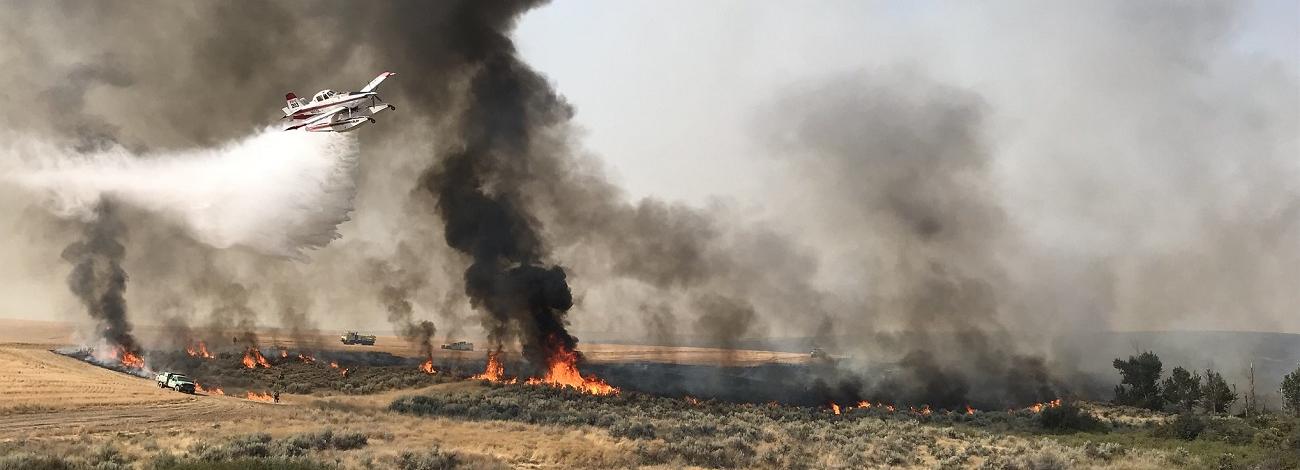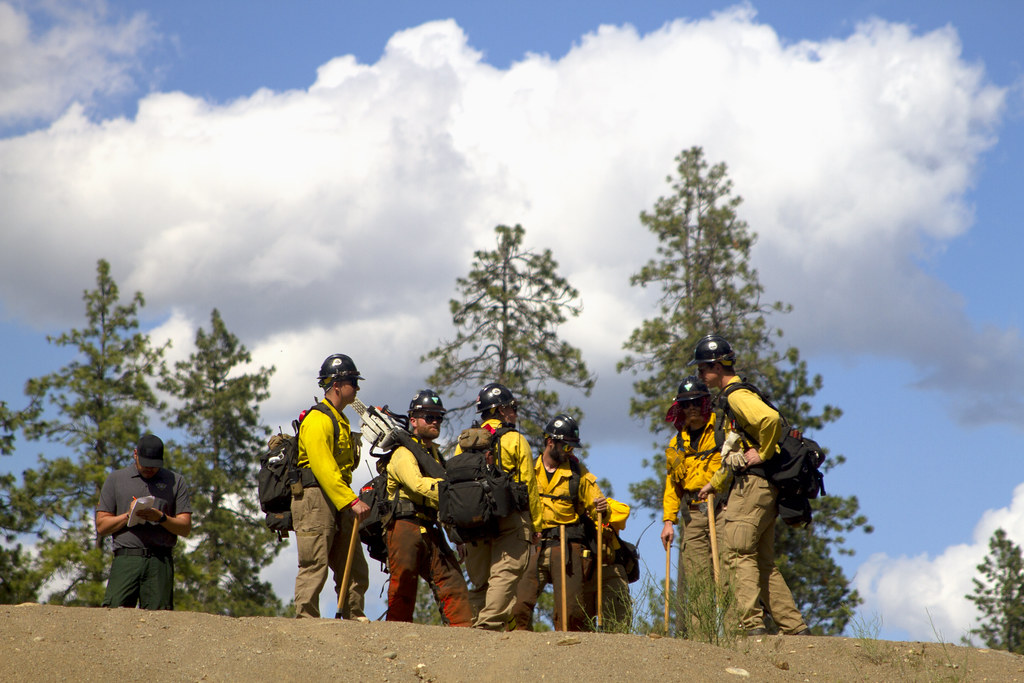
Oregon/Washington Fire Management
BLM fire restrictions and closures info
The BLM Oregon and Washington Fire Program manages fires across 16.1 million acres of public lands. The number one priority is always firefighter and public safety.
The BLM Oregon and Washington Fire Program is responsible for fire suppression, treatment of hazardous fuels, fire prevention, fire investigation, and fire rehabilitation on BLM-managed public lands.
Oregon and Washington’s Fire Program consists of the following:
- Wildland Fire Operations
- Aviation
- Fuels Management
- Fire Mitigation & Community Assistance
- Fire Prevention & Education
- Fire Investigation & Trespass
The BLM’s fire program protects natural resources and skillfully uses fire as a tool to improve the health of the land. Naturally ignited wildland fires are utilized to accomplish resource and healthy lands objectives for specific areas when appropriate and as identified in Land Management Plans. During the spring and fall, prescribed burns (controlled burns) are performed to remove hazardous vegetative materials on the ground to decrease fire danger and to help improve habitat.
Prevent Human-caused Wildfires on Your Public Lands
Fire season in the Pacific Northwest is generally May through October.
- Immediately call 911 to report fires.
- Drones and other unmanned aircrafts are illegal to fly near fires. If you fly, we can’t.
- Fireworks, incendiary/tracer ammunition and exploding targets, are prohibited during fire season (May-October).
- Use caution when target shooting. Clear a 20-foot radius around the target by removing all vegetation and rocks.
- Ensure vehicles and trailers are properly maintained:
- Make sure chains and other metal parts are not dragging.
- Check tire pressure and look for indicators of wear and tear.
- Ensure tires are inflated to the proper level.
- Keep exhaust systems clean and use spark arrestors.
- Do not park on dry grass.
- Carry extra water, shovel, and/or a fire extinguisher with you.
- Ensure your campfire is completely extinguished before leaving your campsite by making sure it is cool to the touch.

